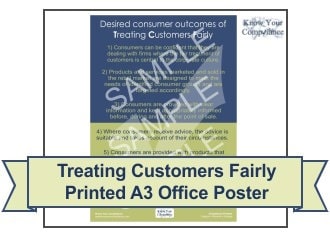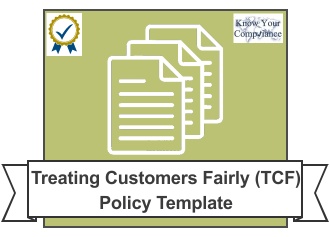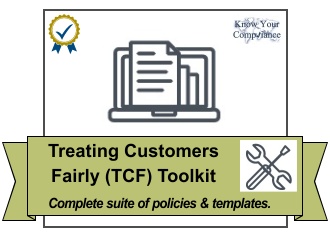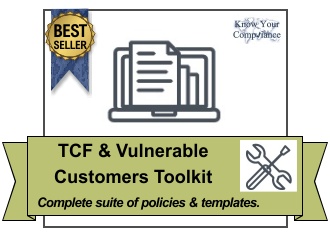What is Treating Customers Fairly (TCF)?
TCF Explained
 What is Treating Customers Fairly (TCF) is not a straightforward question to answer! Coined by the financial services industry, this ethos has far reaching implications for how compliant and effective a business is.
What is Treating Customers Fairly (TCF) is not a straightforward question to answer! Coined by the financial services industry, this ethos has far reaching implications for how compliant and effective a business is.
Simply put, TCF is about ensuring that consumers get a fair and relevant product or service, and that the regulatory rules are complied with by any such provider. TCF is a standard set by the Financial Conduct Authority (FCA), who expect financial firms to be transparent and accountable, thus enabling consumer trust to be restored in buying financial products and services.
FCA’s TCF Expectations
With regards to their viewpoint on TCF, the FCA have advised that: –
“We expect customers’ interests to be at the heart of how firms do business. Customers can expect to get financial services and products that meet their needs from firms that they can trust. Meeting customers’ fair and reasonable expectations should be the responsibility of firms, not that of the regulator.”
As part of the FCA’s TCF initiative, they expect firms to demonstrate that: –
- They are integrating TCF into their business culture.
- Appropriate MI or measures are in place to test whether they are treating their customers fairly, including delivery of the six TCF consumer outcomes.
- The MI demonstrates that they are consistently treating customers fairly and delivering the consumer outcomes.
- There are processes in place that monitor the MI to enable the right people to act.
Firms regulated by the FCA are also required to comply with the FCA’s High Level Principles (PRIN), which includes principle 6 “A firm must pay due regard to the interest of its customers and treat them fairly”.
Understanding the 6 TCF Outcomes
 The 6 TCF outcomes detail what the FCA are trying to achieve for consumers. They are used for guiding regulatory decisions and actions and remain at the core of what the FCA expects of firms.
The 6 TCF outcomes detail what the FCA are trying to achieve for consumers. They are used for guiding regulatory decisions and actions and remain at the core of what the FCA expects of firms.
Training employees on remembering, understanding and applying the 6 TCF Outcomes is essential for regulated firms.
- 1: Consumers can be confident that they are dealing with firms where the fair treatment of customers is central to the corporate culture.
- 2: Products and services marketed and sold in the retail market are designed to meet the needs of identified consumer groups and are targeted accordingly.
- 3: Consumers are provided with clear information and are kept appropriately informed before, during and after the point of sale.
- 4: Where consumers receive advice, the advice is suitable and takes account of their circumstances.
- 5: Consumers are provided with products that perform as firms have led them to expect, and the associated service is of an acceptable standard and as they have been led to expect.
- 6: Consumers do not face unreasonable post-sale barriers imposed by firms to change product, switch provider, submit a claim or make a complaint.
What are the Essential TCF Business Controls?
The FCA provide guidance on how to implement the treating customers fairly principles into a business. Know Your Compliance Limited have a wealth of experience in TCF development and integration and have defined the below 8 areas as being the minimum reviews and development for TCF compliance.
- Policy & Procedures
- Staff Training & Awareness
- TCF Self-Assessment
- Advice, Sales & Marketing
- Complaint Handling
- Staff Incentives & Remuneration
- Audits & Monitoring
- Record Keeping & Management Information (MI)
TCF Policy Template & Checkist Toolkit
If you are looking to upgrade or review your existing Treating Customers Fairly (TCF) compliance program, we provide a market leading TCF Template Toolkit. Including a 40+ page TCF Guidance Manual, ready to use, but fully customisable TCF Policy Template; TCF Checklist and more.




